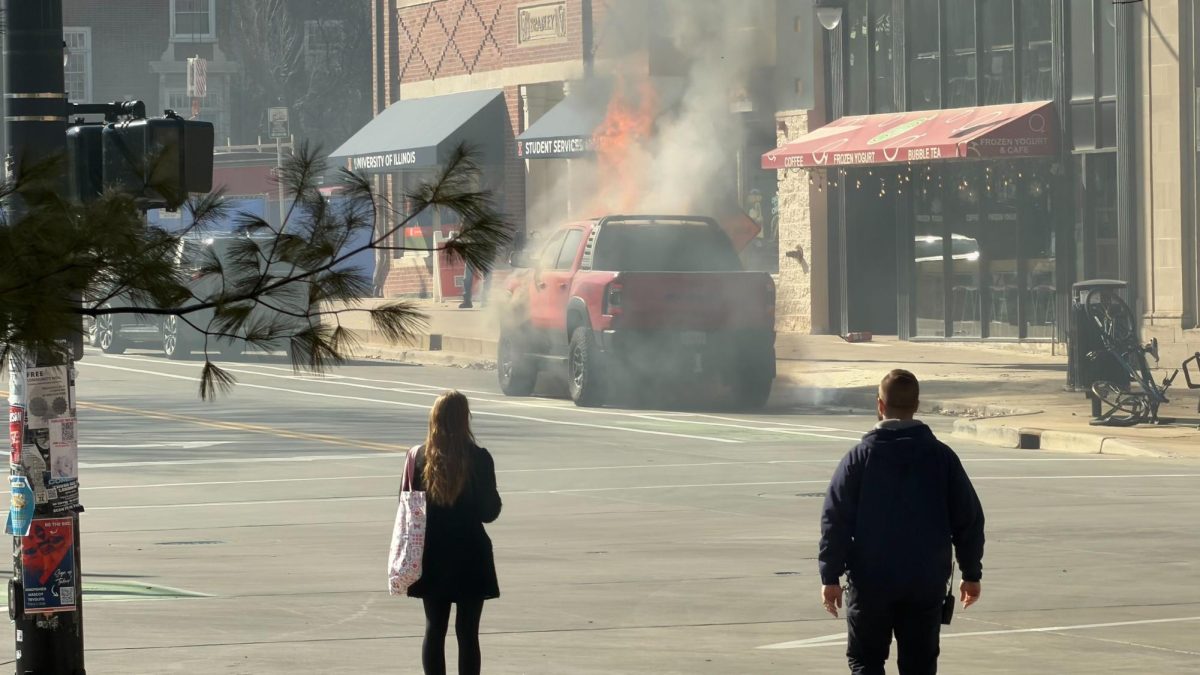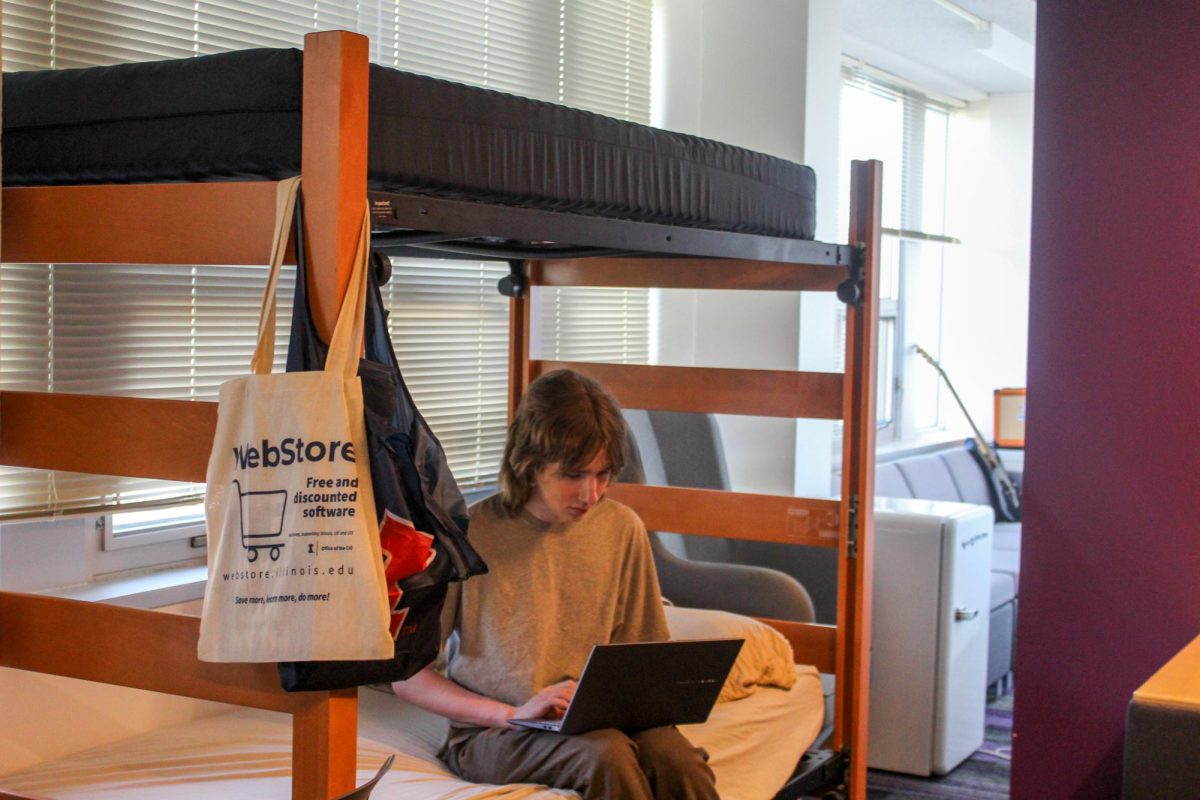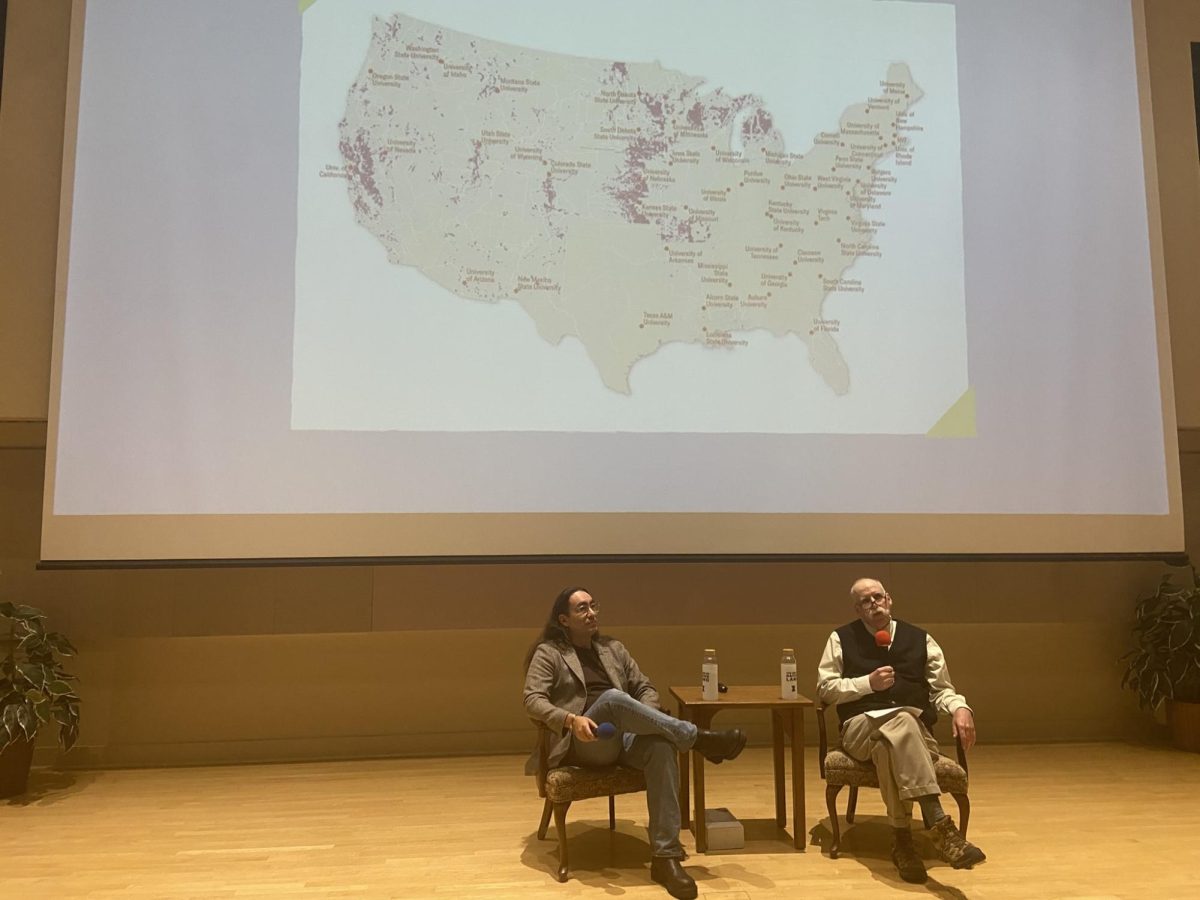Last updated on March 31, 2024 at 05:05 p.m.
Community members gathered at the Urbana-Champaign Independent Media Center on Sunday for a public safety forum to discuss the recent release of the BerryDunn report and alternative models to the community’s police response system.
The BerryDunn report is an operational analysis of Urbana’s public safety services and was released to the public on March 15.
The event was hosted by Miriam Larson, executive director of UCIMC, and Augustus Wood, president of UCIMC and assistant professor in Labor and Employment Relations.
Guest speakers included Daut’e Martin and Tom Thompson of the Law Enforcement Action Program, who spoke about the benefits of creating a more expansive community-based responder service. Chris Evans, Cunningham Township board member, then presented key findings of the BerryDunn report.
Get The Daily Illini in your inbox!
“We all got together with other concerned community members after we heard about what the police chief of Urbana wanted to do by hiring 15 new officers and asking for millions of dollars that the city doesn’t have,” Wood said.
A common concern raised during the forum was how the police budget has grown dramatically since 2020 in spite of Urbana’s decreasing crime rate.
“I felt like (the public safety forum) was incredibly educational,” said Urbana resident Rosa Druker. “I learned so much about different models and the research that’s happening through the BerryDunn report.”
Following the presentations, community members were encouraged to ask questions and initiate discussion.
“I think that we are at the beginning of a conversation about (what) Champaign-Urbana residents want when it comes to responding to calls for service and support,” said Cunningham Township Supervisor Danielle Chynoweth.
A recurring topic during the forum was the community responder model, where nonviolent 911 calls are offloaded from sworn officers to trained and unarmed civilians. This model was proposed by both the Chynoweth and the Law Enforcement Action Program.
“I am in heavy favor of alternative police models because I’ve seen them in other countries in Europe, Australia, parts of Africa that are currently running extremely well,” Wood said. “Now they cut down the assaults and murders of civilians by police (by) almost 50%.”
Other alternatives have also been proposed to challenge the current system of policing, including the use of behavioral health specialists, peer responders and mediators.
“I just think it takes us to save us,” said Champaign resident Jobie Taylor. “We can’t just rely on clergy and politicians and police to come in and save our community. We have to save our own communities.”






